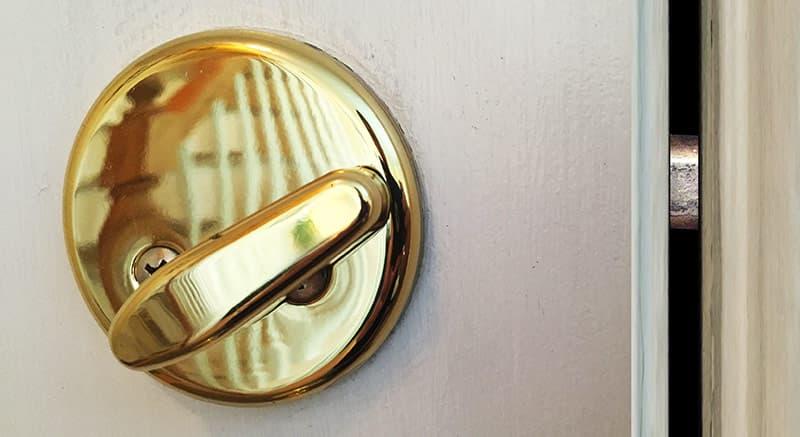As Florida snowbirds start to think about heading back up north for the sweltering summer months, they have lots of things to consider before locking up their winter home base.
Dr. Maria Portelos-Rometo, a family and consumer sciences agent with the University of Florida's Institute of Food and Agricultural Sciences, leads free classes annually to help homeowners keep one of their most valuable assets—their home–safe while they’re gone. What year-round residents learn to expect in the summers, like torrential rains and hurricanes, can sometimes be overlooked by seasonal residents, especially newcomers, according to Portelos-Remeto.
“Many people don't realize that when they're leaving, they should be preparing for a weather disaster," she says. "They should have a plan so that when they roll out the driveway, their home will be secure.”
And there’s more to it than just planning. There are pests, security and appliance maintenance to consider, too. Some items that rank high on the checklist of things to do before leaving the home include taking an inventory of your possessions for insurance purposes, bringing important documents and valuables with you—and, of course, making friends with your neighbors.
If you can’t make it to one of Portelos-Rometo's classes, she's shared some key takeaways.
Take personal documents with you or place them in a safe deposit box
Many home safes can get damaged if there’s flooding or if it's broken into by burglars. Documents to bring with you include marriage licenses, deeds, birth certificates and anything else that’s a big process to replace.
Prepare your tradespeople contact list ahead of time in case of a weather event
“If you need a trusty plumber, an electrician or a roofer, collect those numbers now instead of scrambling at the last minute for repairs that might be needed,” Portelos-Rometo says.
Prep for stormy weather and hurricane season
Get a company to put up your storm shutters. "Lots of homeowners' associations have restrictions on when to put those up and get them down," she says. "Make sure that if you do contract that service before leaving, that a neighbor confirms they did it."

Also, bring in any outdoor furniture and rid the property of potted plants and othermobile items that can become projectiles in high winds.
Take inventory
Take cellphone video of your home. If you have a special piece of art, take a picture and note where the item is in your home. "Do this in every room, and don’t forget your garage and lanai where you may store expensive equipment or vehicles," Portelos-Rometo advises. "This evidence makes filing insurance claims easier."
Protect your appliances
Leave appliances unplugged while you're gone to protect from electrical-current surges during storms. If you’re gone for two or more months, unplug the refrigerator and leave its doors ajar.
Don't invite uninvited pests
Unopened cans and jars of food can be left on shelves, but flour, sugars and salt should be stored in tightly-sealed containers. Get rid of cereals, crackers, and pasta to avoid household pests, too.
Give away or dispose of opened bottles and jars of salad dressings, condiments, and other perishable items. Replacing them will cost less than paying to keep your refrigerator operating during the two to three months you’re gone.
Clean portable appliances thoroughly (don't forget the trap door under the toaster).
Cover toilets and toilet tank tops with plastic wrap and put stoppers in drains to block access points.
Watch out for water
Turn off the water supply to the clothes washer to eliminate pressure damage to the hoses.
Turn off the water heater if you plan to be gone for a month or more. For shorter absences, turn the water heater’s thermostat to its lowest setting.
Don't drain the pool; the sun can dry it out and cause it to crack.
Program and clean your air conditioner
Change the air conditioner filter.
If you have a programmable thermostat, set it to turn on the air conditioning for a two-hour period in the cooler, early morning hours. If you don’t have one, set the thermostat between 80ºF and 85ºF.
Deter break-ins
Deterring break-ins doesn't stop at arming the alarm system.
Stop mail, newspapers, and deliveries. Untouched mail gives away an empty abode. A car parked in the drive or carport discourages burglars, too. Consider asking a friend or neighbor to leave their car in your driveway.
Take care of your clothes
Contrary to popular habits, don't wrap garments you're leaving behind tightly in plastic— it may lead to mildew. Metal hangers, even when covered with paper, can rust and stain clothing.
For more in-depth information on how to migrate right, register for "Closing up Your Florida Home" on March 17, from 2-3 p.m. at Gulf Gate Library, 7112 Curtiss Ave., Sarasota, or attend online on March 29 and April 19. Admission is free.
